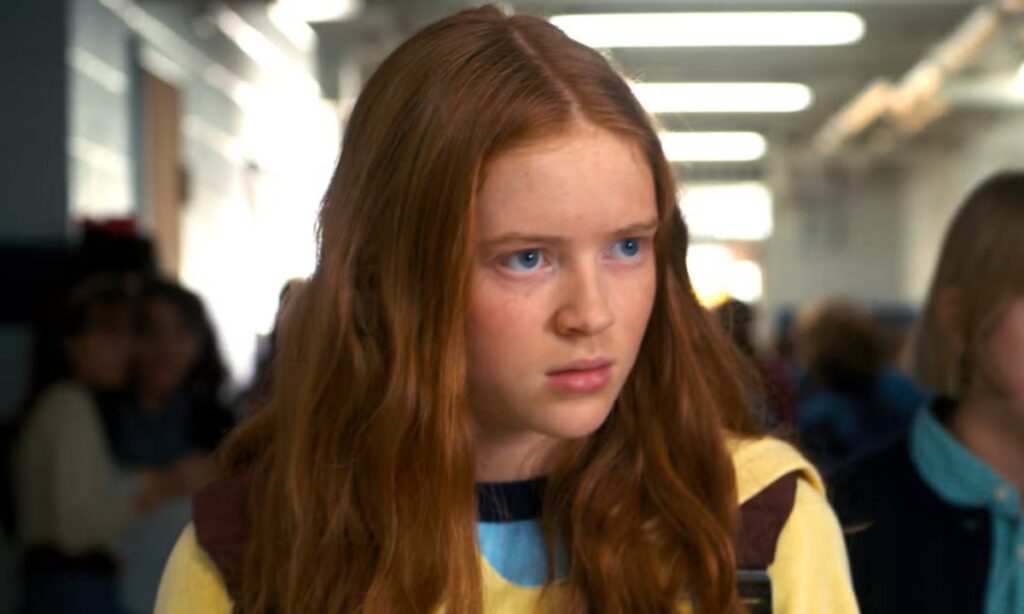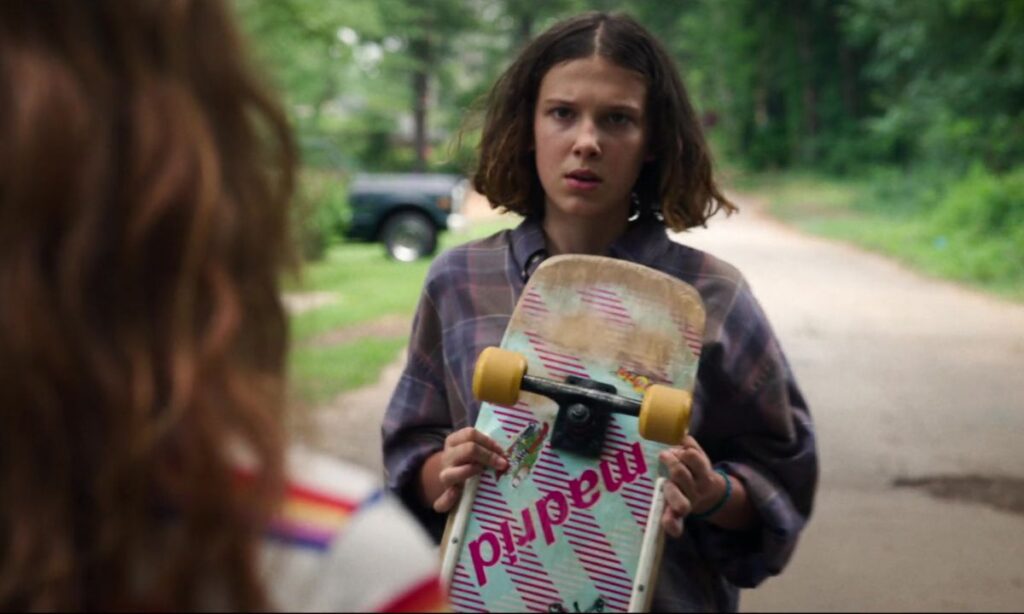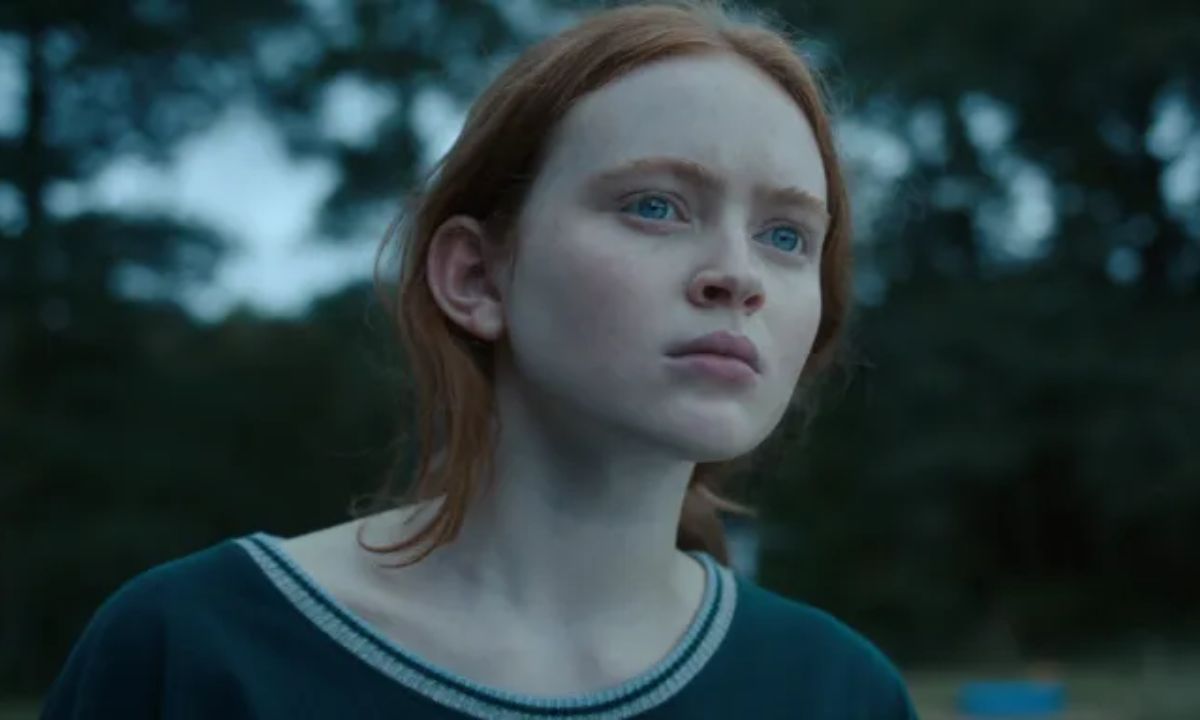Table of Contents
Imagine a skateboard coming to a screeching halt, the seams of a safe life ripped open in dramatic fashion. That’s Max Mayfield in Season 2—arriving with attitude, hiding pain, a spark of rebellion yet unmistakably fragile. She wasn’t the spotlight-stealing, supernatural-fighting frontrunner. But like Hawkins itself, she was quietly gathering strength—one scar, one skinned knee, and one emotional breakdown at a time.

Max – a hero without power
If Eleven is Hawkins’ superhero, Max Mayfield is its soul. No powers. No sprawling family cheering her on. No glowing telekinetic victories. Just a girl with a skateboard, headphones, a broken home, and trauma stacked like Jenga blocks. And somehow, she’s still standing.
Max isn’t the chosen one. She’s not the one destined to save the world. And maybe that’s what makes her so relatable — she’s like us. She’s the quiet warrior who reminds us that strength doesn’t always come with sparks flying from her hands.
Here are 5 moments that strengthen her qualities as a hero – someone who thrives amid pain and hardships—just like the rest of the world.
She has to fight loneliness at home
While Eleven battles Demogorgons with telekinesis, Max fights something even scarier: her own mind. She faces survivor’s guilt, grief for her stepbrother, loneliness at home, and the sinking feeling that she might not belong anywhere. And when Vecna comes for her, she has nothing but a Walkman and Kate Bush’s voice to hold onto.
Fans on Instagram have called Max “the most human character on the show.” She doesn’t have a cabin in the woods to hide in or a government lab tracking her every move. She has to wake up, go to school, dodge bullies, and deal with divorced parents who barely notice her. And yet, when it’s time to fight, she does — not because she’s destined to, but because she chooses to.
She wears sisterhood badge with pride
When Max first rolled into Hawkins, she fit the “new girl” badge a little too well: snarky, guarded, half the time alone on her skateboard. As one Redditor memorably put it:
“Max came off as sarcastic and cold, yet when she stood up for the group, the real Max—warm, vulnerable, loyal—showed through.” – A fan on Reddit
That moment she stood by Eleven at the mall? A simple, powerful shift—two girls, raincoats, and an unspoken pact. Suddenly, it was no longer about boys or secrets. It was about having someone who sees you.
Feminism with empathy? Yup. that’s Max!
In a show rife with supernatural beasts, Max offered another kind of power: empathy. As Teen Vogue put it, she gave Eleven a feminist, emotional grounding Eleven didn’t know she needed. Max told her, “Dump his ass”—simple, blunt advice, but so deeply earned. She insisted El felt more than a savior; she deserved freedom.
This wasn’t performative girl power. It was born from Max’s own boundaries, forged by surviving her toxic relationship with Billy and a fractured home life.
She fought against death and darkness
By Season 4, Max’s survival turned mythic. Facing Vecna wasn’t just another horror beat—it was her entire personal tragedy spelled out in supernatural terms. Narratively, she endured trauma not just from her past but from her own mind. Vecna twisted her survivor’s guilt into a death wish, mocking her grief over Billy’s memory. But here’s where she defied expectations: she fought back, weaponizing her emotional wounds into defiance.
That “Running Up That Hill” sequence? It wasn’t just cinematic brilliance—it’s Max’s DOOM moment where she pulls herself back from the edge, not with magic, but with the love she still believes in. In that blood-slick hallway, she’s not just fighting a monster. She’s fighting herself. And she wins.
The sacrifice that echoes
It’s hard to overstate how crushing the ending felt. Max’s coma didn’t feel like a relief—it felt like the gut punch of “Okay, we hadn’t lost her before, but we might lose her now”, which many fans are apparently sad about.
Her choice to step into danger for everyone else wasn’t a dramatic plot device—it was a narrative crown for the person who grew from outsider to emotional backbone of the group.
Not everyone likes people like Max. And that’s okay.

Not everyone has loved her. In Season 3, as Eleven’s world got tangled in teen drama, Max became a target—for being too loud, too assertive, too meddling in Mike and El’s relationship. Some critiques were unkind.
A Redditor pointed out the hypocrisy:
“They vilified Max for messing with El and Mike, yet gave Hopper the pass for scheming worse. Max’s anger was trauma-informed, not cartoonishly malicious.”
Many who once found Max abrasive now feel the opposite:
“She grew on me in Season 4… ‘Dear Billy’ and the ‘Running Up That Hill’ was her defining moment. I cried.”
And the fan consensus? “Max Mayfield is one of the best characters” has become part of fandom shorthand.
What makes Max truly strong
Write-worthy strength isn’t just about who slays monsters—it’s about who carries your fear for you when you’re broken. Max’s strength is layered:
TV critics and blogs echo these sentiments. Cinemablend called her resilience “astounding” and noted how season 4 elevated her from a reflexive character into a heroic force, fueled by love and loyalty. Cinemablend The Mary Sue praised her unapologetic authenticity—tomboy, skateboarder, “feminist in the Party.” The Mary Sue
Final thoughts
Max Mayfield isn’t just a supporting character in a supernatural saga—she’s the emotional compass for the group. She reminds us that bravery doesn’t always roar—it can whisper, grieve, break down, and stand up again. Her story proves that being strong doesn’t mean ignoring your hurt. It means running toward the people who love you—sometimes when everything inside says “stay down.”
To the fans and creators: Max deserved her arc. Not clean. Not simple. Complicated, heartbreakingly human, and ultimately unforgettable.
